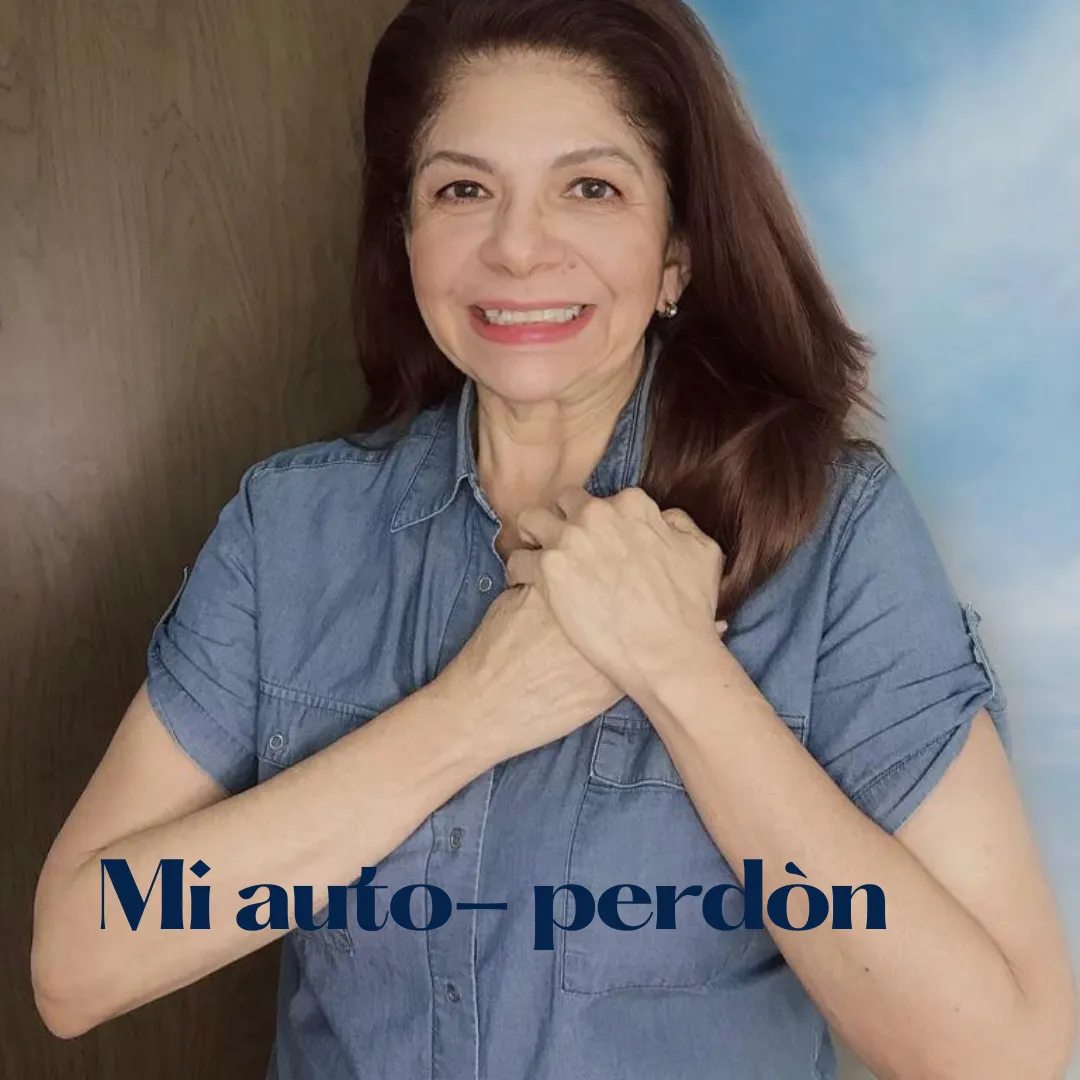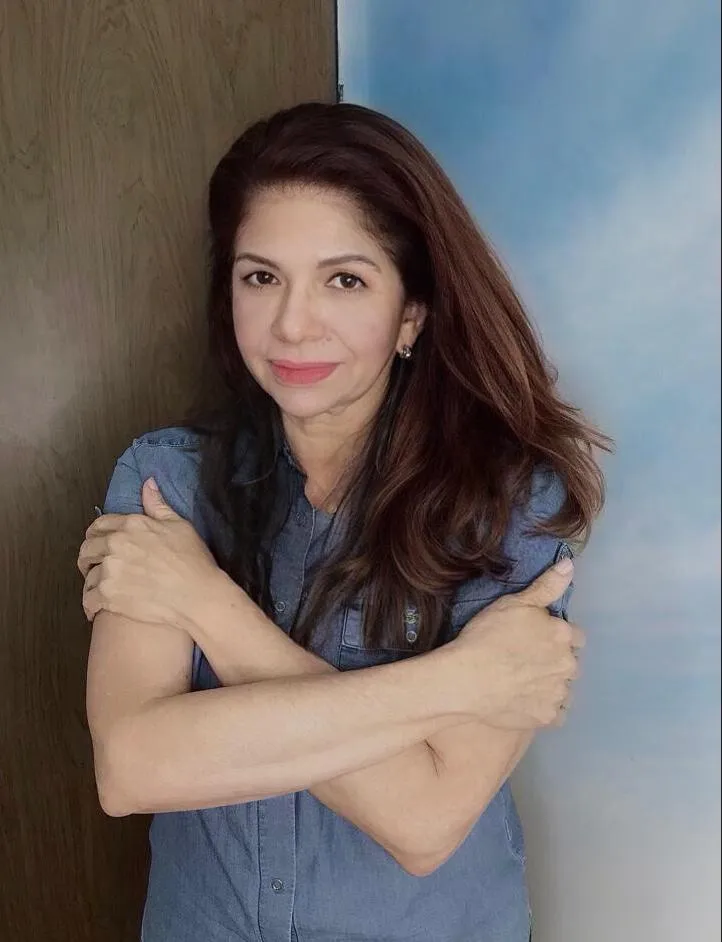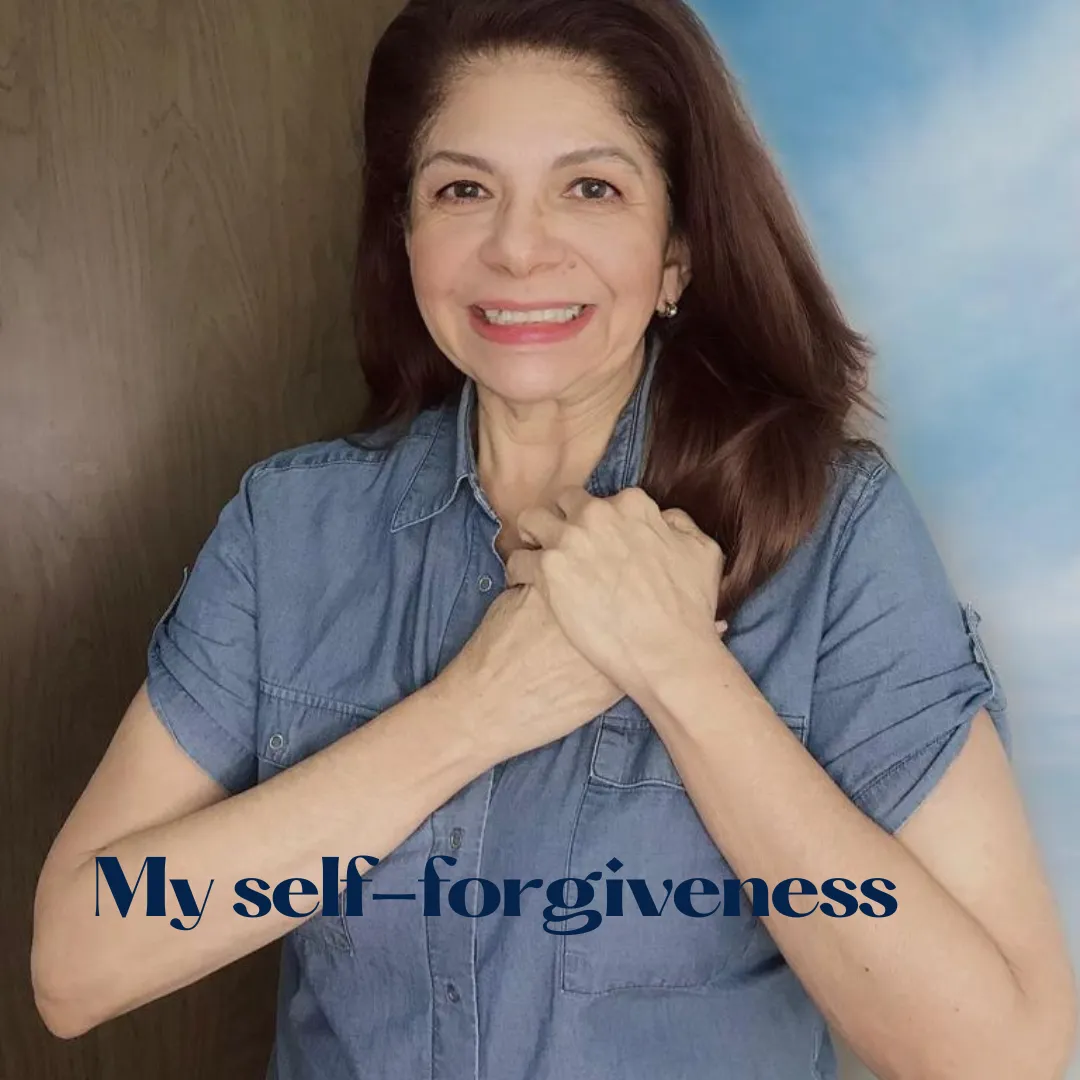
This post is both in English and Spanish, you can do it directly to English by giving HERE
Mi Auto-Perdòn
¿Qué es menos complejo: pedir perdón o perdonar? ¿Qué es menos complicado: perdonar a otros o perdonarse a sí mismo?
He transitado el camino del autoperdon para llegar a la liberación. Tema de trabajo en mi formación gestáltica. Para mí es más fácil el perdonarme, allí entro en el proceso reflexivo y me encuentro con el ser imperfecto que soy y esto se logra cuando somos empáticos con nosotros, es un gran camino recorrido.
Es el mejor cicatrizante para el corazón. Tiene una sola indicación, es de autoaplicación, nadie puede hacerlo por nosotros. No importa si el otro no recibe el perdón, la disculpa, no se entera.
El perdón es absolutamente liberador y cuando lo accionas sientes que sales de la cárcel mental y emocional.
¡El perdón como tema es toda una complejidad! Y definitivamente dependerá de muchas cosas: la falta, el agravio, las creencias de quien afecta o del afectado. En todos los casos lo que sí creo que es similar es lo que genera en el ser humano: "La culpa”
Si herimos sin intención aparece la “culpa”, si nos hacen daño en el fondo sentimos culpa porque creemos que pudimos haberlo evitado. En muchos de los casos aparece un monstruo más gigante y doloroso: "la culpa" y uno de los desafíos más complejos: "El autoperdón".
Cuando crees que una persona te hace daño y te pide perdón, si lo hace con honestidad, con ese propósito de enmienda sobre la falta, creo que hace menos complejo que elijas perdonarle.
Pero, ¿Qué pasa cuando eso no ocurre?
La mayoría de las veces nos quedamos pegados en el proceso aun sabiendo que no es posible controlar las acciones de otras personas, es decir, jamás podremos controlar lo que los otros hacen o sienten
Únicamente tenemos control sobre nosotros mismos, sobre nuestras acciones y elecciones.
Muchas veces puede resultar más sencillo perdonar a otros que perdonarse a uno mismo, ¿Por qué ocurre esto? ¿Por qué en ocasiones somos inflexibles para juzgar nuestros propios actos?
Porque el perdón a uno mismo implica cambiar la interpretación sobre situaciones dolorosas del pasado donde nos sentimos culpables.
Cada vez que vemos lo que pasó poniendo en centro lo que debimos hacer, alargamos el proceso de culpa, vergüenza y arrepentimiento.
Porque el pasado es fáctico, no es posible cambiarlo por más doloroso que sea o entender que no es posible cambiar el resultado; pero sí elegir qué hacer con ello para acciones futuras.
Lo que hiciste fue lo que pudiste y supiste hacer en ese momento y de alguna forma también constituyó el ser que eres hoy.
Aceptar requiere ese autoperdón para lograr una relación mucho más sana, liviana y humana con un pasado doloroso y eso es fundamental para reconocer y valorar nuestros cambios y nuestro crecimiento personal.
La gran pregunta que me surge luego de producir este contenido, leerlo y conversarlo en este espacio es ¿El perdonarnos es un proceso de sanación o una decisión?

Creo que tiene de ambas, en lo personal elijo y sano. Sin duda alguna la culpa es precisamente lo que limita ese auto perdón. No es la que da un Juez, es la que imponemos como Jueces duros y crueles con nosotros mismos.
Evidentemente, el perdón es un tema de expectativas en nuestra vida, para mí la complejidad de uno y otro viene del reconocimiento propio que hacemos de nuestros principios y valores, y hasta donde hemos actuado con responsabilidad en la acción del hecho que así lo amerita.
El auto perdón es sacar a flote como cualquier SER nuestras miserias humanas y redescubrirnos, limpiándonos.
Aun cuando a veces NO aceptó el término culpa porque me suena a dolo e intención en el agravio, quizás, desde el SER hasta dónde somos responsables y allí vendría mi respuesta, me es fácil pedir perdón, pues, primero concreto la falta para perdonarme a mi misma y a los otros.
Amo producir contenido en esta comunidad de emociones y sentimientos,por la reflexión y el aprendizaje mutuo, a todos mil gracias por leer y comentar sus expectativas, elecciones, desde la empatía, el autoperdòn con nosotros mismos.

✨English✨
My self-forgiveness
What is less complex: asking for forgiveness or forgiving? What is less complex: forgiving others or forgiving oneself?
I have walked the path of self-forgiveness to reach liberation. This is a theme I work on in my gestalt training. For me, it is easier to forgive myself, there I enter into the reflective process and I find myself with the imperfect being that I am and this is achieved when we are empathic with ourselves, it is a great path to follow.
It is the best healing for the heart. It has only one indication, it is of self-application, no one can do it for us. Furthermore, it does not matter if the other does not receive the forgiveness, the apology, he/she does not know.
Forgiveness is absolutely liberating and when you act it you feel that you get out of the mental and emotional prison.
Forgiveness as a subject is a whole complexity! And it will definitely depend on many things: the fault, the offense, the beliefs of the person affected. In all cases, what I do believe is similar is what it generates in the human being: "Guilt".
If we hurt unintentionally "guilt" appears, if we are hurt deep down we feel guilt because we believe that we could have avoided it. In many cases a more gigantic and painful monster appears: "guilt" and one of the most complex challenges: "Self-forgiveness".
When you believe that a person has hurt you and asks for forgiveness, if he/she does it with honesty, with that purpose of amendment about the fault, I think it makes it less complex that you choose to forgive him/her.
But what happens when that doesn't happen?
Most of the time we get stuck in the process even knowing that it is not possible to control the actions of other people, that is, we can never control what others do or feel.
We only have control over ourselves, our actions and choices.
Many times, it can be easier to forgive others than to forgive oneself. Why does this happen? Why are we sometimes inflexible in judging our own actions?
Because self-forgiveness involves changing the interpretation of painful situations from the past where we feel guilty.
Every time we look at what happened by focusing on what we should have done, we lengthen the process of guilt, shame and regret.
Because the past is factual, it is not possible to change it no matter how painful it is or to understand that it is not possible to change the outcome; but it is possible to choose what to do with it for future actions.
What you did was what you could and knew how to do at that moment, and in some way it also constituted the being you are today.
Acceptance requires that self-forgiveness to achieve a much healthier, lighter and more humane relationship with a painful past, and that is fundamental to recognize and value our changes and our personal growth.
The big question that arises after producing this content, reading it and talking about it in this space is: Is forgiveness a healing process or a decision?

I think it has both, personally I choose, and I heal. Undoubtedly, guilt is precisely what limits self-forgiveness. It is not the one given by a Judge, it is the one we impose on ourselves as hard and cruel Judges.
Evidently, forgiveness is a matter of expectations in our life, for me the complexity of both comes from the self-recognition that we make of our principles and values, and to what extent we have acted responsibly in the action of the fact that deserves it.
Self-forgiveness is to bring out our human miseries and rediscover ourselves, cleansing ourselves.
Even though sometimes I do NOT accept the term guilt because it sounds to me like dolo and intention in the offense, perhaps, from the BEING to where we are responsible and there would come my answer, it is easy for me to ask for forgiveness, because, first I concretize the fault to forgive myself and the others.
I love to produce content in this community of emotions and feelings, for the reflection and mutual learning; to all of you thank you for reading and commenting your expectations, choices, from empathy, self-forgiveness with ourselves.
MIS REDES SOCIALES|MY SOCIAL NETWORKS
Iconos por: | Icons by: Icofinder
Edición de portada por:/Cover edition by: @janitzearratia Canva
Fotografias por:|Photografy by @janitzearratia
Dispositivo|Iphone 5
Translation with| DeepL



